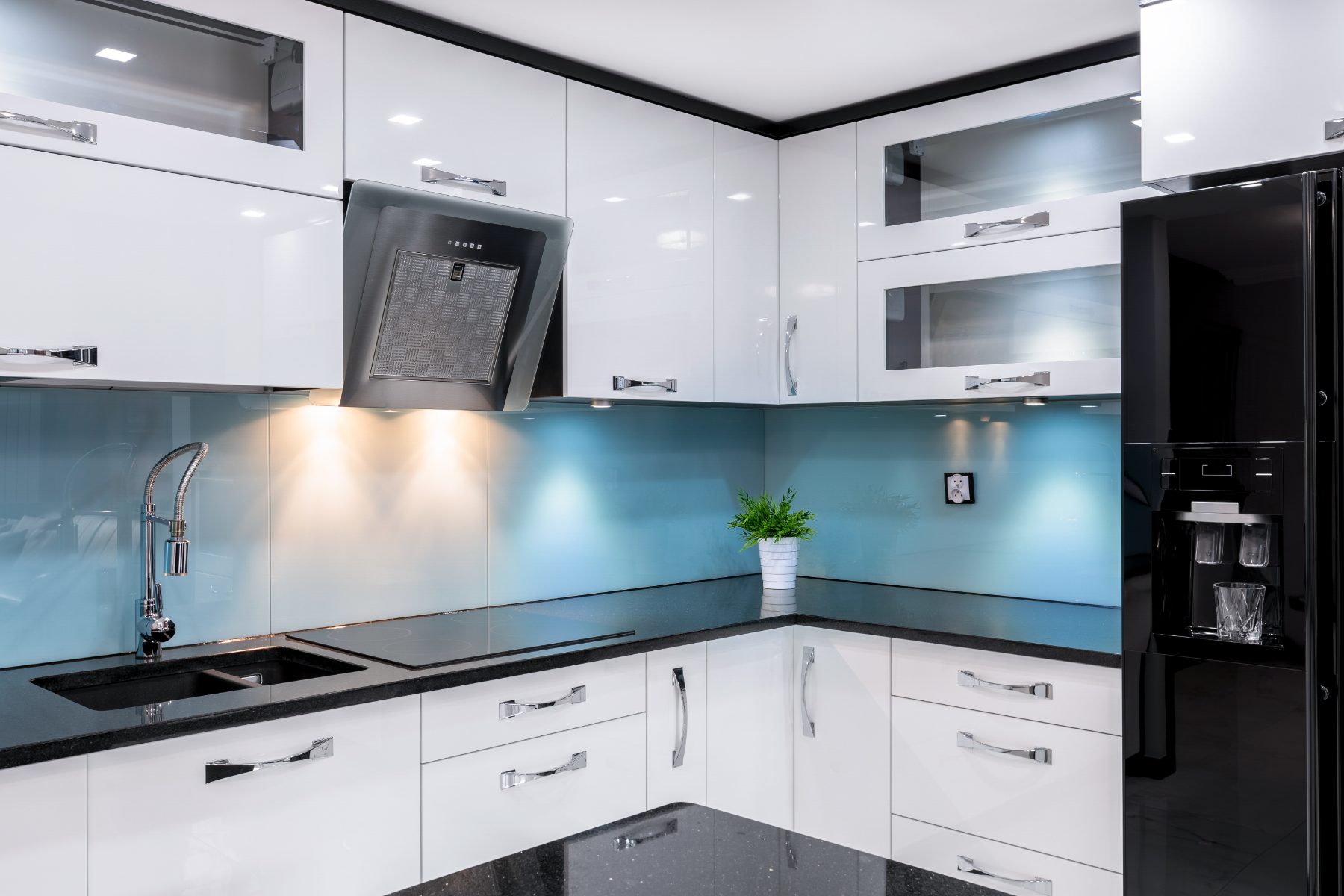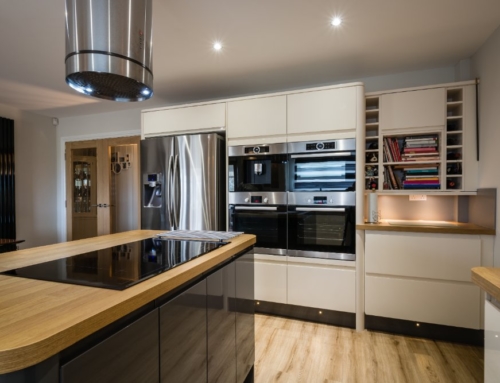If you’ve installed a new kitchen worktop, there’s nothing worse than it becoming damaged or looking tired within months of installation. It’s important you take good care of your solid counters and follow any cleaning instructions given to you by your supplier, or you could even risk invalidating your warranty.
Here’s everything you need to know about the care and maintenance of acrylic solid surface worktops.

Why choose an acrylic kitchen worktop?
Acrylic surfaces are often chosen for kitchens to get the look of natural stone and other materials while staying affordable. Top manufacturers like Minerva, Mistral, Mirostone and Greenlam Slabtech offer the best acrylic kitchen worktops. These versatile surfaces are perfect for creating beautiful and easy-to-clean kitchen counters.
Acrylic solid surface worktops are low maintenance, making them a long-lasting, durable option for kitchen counters. They’re also hygienic, thanks to their non-porous nature.
However, there are lots of care and maintenance tips to keep them looking their best.
How to stop acrylic kitchen counters from being damaged
While acrylic is highly water resistant, it isn’t so good with heat, so bear this in mind when cooking. If you need to transfer hot pans and trays to a serving area, it’s best to lay down trivets or glass mats first to protect your worktops.
Acrylic kitchen counters can also get scratched or damaged if you cut, chop or slice ingredients directly on them, so always use a chopping board when preparing meals.
If you need to get something high up in your kitchen cupboards or change a light bulb, never stand on your worktops, or it could crack a join, regardless of the surface or installation quality.
Cleaning tips for acrylic solid surface worktops
You should also consider how to clean acrylic solid surface worktops if you’re fitting them in your kitchen. Luckily, special maintenance kits aren’t required, but regular cleaning will help them look as good as new.
Most marks can be removed with a general antibacterial kitchen cleaner (always read the instructions carefully) and microfibre cloth. However, for more stubborn marks, you could use a non-metal kitchen scourer for extra oomph.
Unfortunately, acrylic can become stained, but as a non-porous material, tough marks can be easily removed using a bleach product. You must check the bottle first to find out how to use it and ensure its suitability for acrylic worktops in the kitchen. It’s also important to protect your skin and eyes while cleaning with this type of product while keeping it away from little ones and pets.
Avoid harsh chemicals where possible when cleaning your kitchen worktops, and don’t use metal scourers, which can scratch the surface.
Get new kitchen worktop advice here
Are you considering an acrylic solid surface worktop installation for your kitchen? Contact our friendly, knowledgeable team at Olly London. We work across the South East, coming out to areas of Kent, Hampshire and beyond.
To get in touch for a free quote, call now on 07815 996 812 or email info@ollylondon.co.uk.



